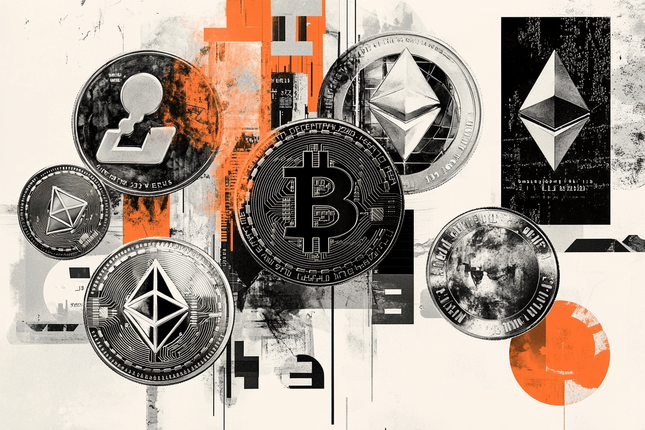Feeling stuck in a negativity loop? Learn how your brain's natural bias towards the bad can influence your judgment and limit your success.
Our brains are wired for survival, making them more prone to threats than rewards. This "negativity bias" explains why bad news travels fast and why a single critical comment can linger longer than a dozen compliments. It's like having a built-in smoke detector constantly scanning for danger, a crucial trait for our ancestors facing predators but one that can lead to an "amygdala hijack" in modern life.
The amygdala, a part of the brain responsible for processing emotions, excels at detecting threats. Even after resolving a challenge, the amygdala might stick to "what ifs," keeping us in a state of unnecessary worry. Imagine negotiating a raise successfully, great news! But the amygdala might still linger on potential scenarios like, "What if I hadn't gotten that raise? How would I have managed?" Similarly, after a good financial investment, it might focus on potential losses that didn't happen. This negativity bias makes bad experiences stickier in our minds, subtly influencing our choices.
Research shows the profound impact of negativity. Losing $50 stresses us out more than winning $50 excites us. This "positive-negative asymmetry" means negative comments sting more than compliments feel good. We're wired to notice and remember the bad more vividly, impacting everything from our interactions to decision-making (The Power of Bad book). Think about it: have you ever dwelled on a critical email for days, or even an email you never received, while barely registering a series of positive feedback? This negativity bias can create a distorted perception of our overall performance and experiences, igniting negative self-doubt and sadness.
Interestingly, focusing on preventing bad things from happening can be more effective than chasing positive outcomes at all costs. Ignoring financial risks during a crisis is obviously unwise, just like overlooking tornado warnings. However, missing a night out might result in missing out on fun, not catastrophe (The Power of Bad Book). This highlights the importance of prioritizing avoiding the bad over maximizing good. It's not about ignoring positive events but recognizing the outsized influence negativity has on our decision-making and taking proactive steps to neutralize it.
Instead of ignoring negativity, we can leverage it for good. Here are some strategies to harness the power of bad and turn it to our advantage:
- Learn from criticism: Don't take negative feedback personally. View it as a valuable learning opportunity. Use it to identify areas for improvement. Analyze what went wrong, identify areas for improvement, and move forward with the lessons learned.
- Minimize mistakes: Actively listen and plan to avoid preventable errors. This doesn't mean micromanaging everything but taking the time to understand instructions and consider potential risk before joining a project.
- Challenge negative self-talk: When negativity hits you, counter it with a firm "not useful." Your brain may be listening, and we can trick it not to go there in the future. Avoid negative self-talk at all costs and replace it with more positive approaches. Instead of thinking, "I'm going to fail," try something positive like, "I can do this. I've worked my ass off."
- Seek positivity: Seek out positive reinforcement no matter what. Celebrate your successes, both big and small as this builds positive momentum. Share your achievements with trusted friends and colleagues. Avoid toxic people at all costs and surround yourself with positive folks.
- Redefine negative situations: Challenge negative interpretations of events. Look for the silver lining. Could this seemingly negative experience offer an opportunity for growth or learning? For example, a job rejection might be a chance to explore a different career path that's a better fit. Spinning situations in a more positive light can significantly reduce the emotional impact of negativity.
In conclusion, understanding negativity bias can help you manage your brain's power more effectively. By avoiding the bad and transforming negative into positive, you can deal with life's hardship with greater optimism achieving more happiness and success. At the end of the day, your brain can be your best friend or your worst enemy. It is up to you to make this happen, and use the power of bad to your advantage, converting negativity into a force for good.
All information posted is for educational and information use only, and it should never replace professional advice. Should you decide to act upon any information in this article, you do so at your own risk.
Editors’ Picks

EUR/USD gathers traction, approaches 1.1800
EUR/USD manages to reverse Tuesday’s pullback, advancing to two-day highs near the 1.1800 hurdle in the latter part of Wednesday’s session. The pair’s decent uptick comes on the back of the modest retracement in the US Dollar, as investors continue to closely follow developments on the trade front and news from the White House in the wake of President Trump’s SOTU speech.

GBP/USD challenges multi-day highs near 1.3530
GBP/USD leaves behind the previous day’s decline and regains fresh upside traction on Wednesday, surpassing the 1.3500 barrier in a context of a modest decline in the Greenback and a generalised improved mood in the risk-linked space. Meanwhile, the US tariff narrative continues to dictate the mood among market participants after Presidet Trump’s SOTU speech failed to surprise markets.

Gold remains bid and close to $5,200
Gold buyers are returning to the fold on Wednesday, targeting the $5,200 area and possibly beyond, after Tuesday’s corrective dip from monthly highs. The rebound in the precious metal comes as the US Dollar loses traction, with Trump’s SOTU speech offering little fresh direction and AI-related nerves continuing to ease.

Crypto Today: Bitcoin, Ethereum, XRP test rebound strength as ETF inflows return
Bitcoin, Ethereum and Ripple are gaining traction at the time of writing on Wednesday, amid persistent market doldrums. The Crypto King is up over 2% intraday, trading above $65,000 from the day’s opening of $64,058.

Nvidia earnings to influence AI trade and broader market sentiment Premium
For the last three years, Nvidia has been the engine of the AI boom, and now Wall Street is watching to see whether that momentum can keep going. High-growth stocks have been struggling to maintain their bullish trend in 2026.
RECOMMENDED LESSONS
Making money in forex is easy if you know how the bankers trade!
I’m often mystified in my educational forex articles why so many traders struggle to make consistent money out of forex trading. The answer has more to do with what they don’t know than what they do know. After working in investment banks for 20 years many of which were as a Chief trader its second knowledge how to extract cash out of the market.
5 Forex News Events You Need To Know
In the fast moving world of currency markets where huge moves can seemingly come from nowhere, it is extremely important for new traders to learn about the various economic indicators and forex news events and releases that shape the markets. Indeed, quickly getting a handle on which data to look out for, what it means, and how to trade it can see new traders quickly become far more profitable and sets up the road to long term success.
Top 10 Chart Patterns Every Trader Should Know
Chart patterns are one of the most effective trading tools for a trader. They are pure price-action, and form on the basis of underlying buying and selling pressure. Chart patterns have a proven track-record, and traders use them to identify continuation or reversal signals, to open positions and identify price targets.
7 Ways to Avoid Forex Scams
The forex industry is recently seeing more and more scams. Here are 7 ways to avoid losing your money in such scams: Forex scams are becoming frequent. Michael Greenberg reports on luxurious expenses, including a submarine bought from the money taken from forex traders. Here’s another report of a forex fraud. So, how can we avoid falling in such forex scams?
What Are the 10 Fatal Mistakes Traders Make
Trading is exciting. Trading is hard. Trading is extremely hard. Some say that it takes more than 10,000 hours to master. Others believe that trading is the way to quick riches. They might be both wrong. What is important to know that no matter how experienced you are, mistakes will be part of the trading process.
The challenge: Timing the market and trader psychology
Successful trading often comes down to timing – entering and exiting trades at the right moments. Yet timing the market is notoriously difficult, largely because human psychology can derail even the best plans. Two powerful emotions in particular – fear and greed – tend to drive trading decisions off course.
